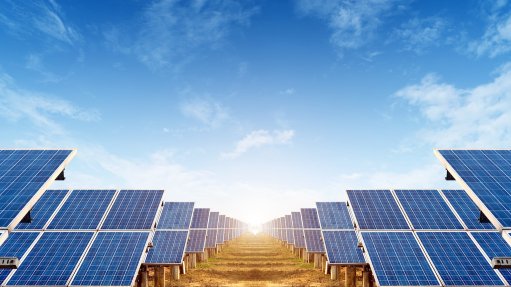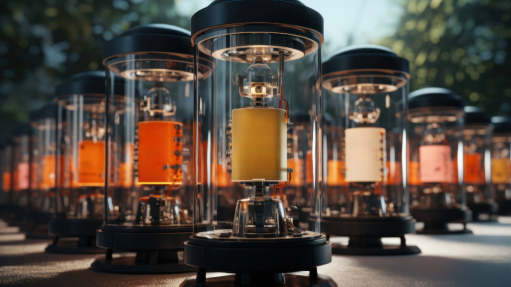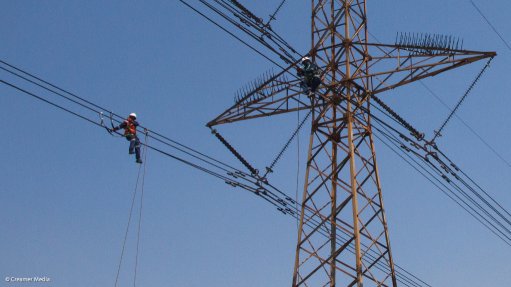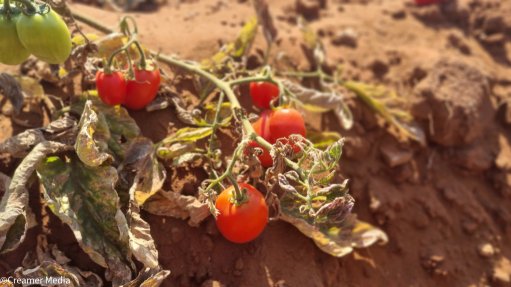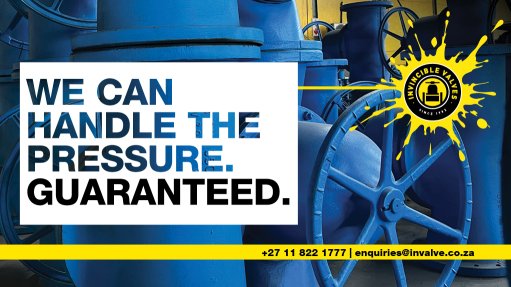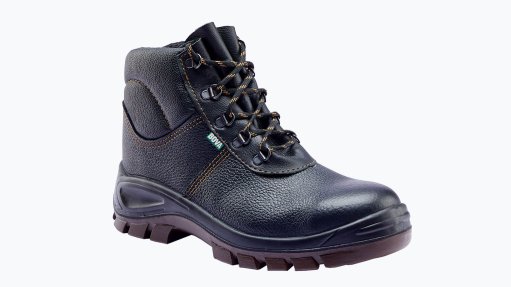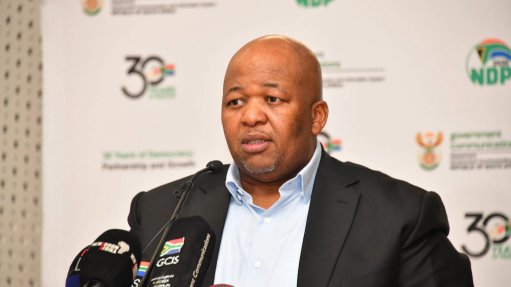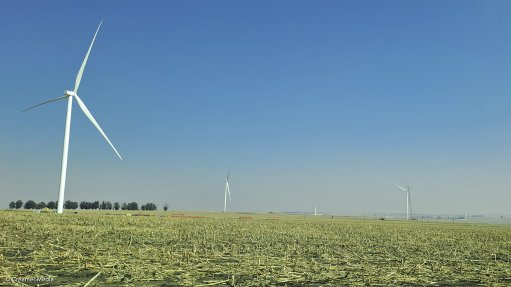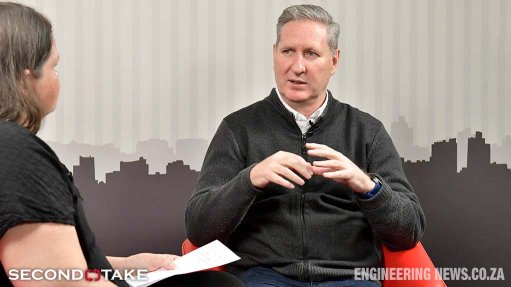Grundfos pumps keep up pressure in new Rosebank blocks

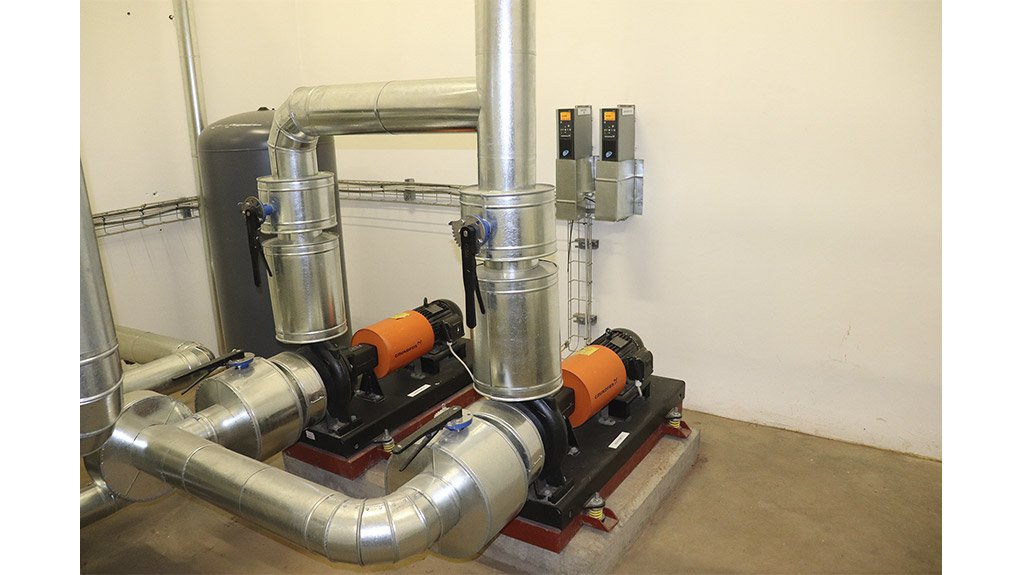
A Grundfos TPED pump is used to circulate water from the hot water tank to the heat exchangers
This article has been supplied.
To reliably serve the water needs at three recently constructed multi-story apartment buildings in Rosebank, Johannesburg, ACS Consulting Engineers has installed a range of the latest pumping solutions from Grundfos.
Reaching heights between 10 and 22 floors, the three buildings required domestic water reticulation, hot water production and drainage solutions, according to Willem Strydom, senior design engineer at ACS Consulting Engineers.
“The domestic water supply throughout the buildings required pressure boosting due to the building heights and insufficient municipal pressure,” says Strydom. “A break tank in the basement of each building was used to disconnect municipal pressure – and will also limit the impact of any water outages.”
In terms of the system design, Grundfos vertical multi-stage booster pump sets were installed to transfer water from the basement tank to a secondary roof storage tank. This increases the storage capacity during water outages, while boosting pressure due to the geodetic height of the roof tank.
“A second Grundfos booster pump set – with its suction connected to the roof tank – was then situated in the basement plant room to supply hot and cold water throughout the building,” he explains.
Water heating is achieved by heat pumps in one of the buildings, and gas boilers in other two, with open hot water tanks used as ‘batteries’. For this application, Grundfos TP hot water circulating pumps – which are vertical in-line units – circulate water from the tanks through the boilers and back to the tanks.
“This keeps a constant temperature of 55 to 60 degrees Celsius in the tanks,” he says. “Water is circulated from the hot water storage tanks through heat exchangers using Grundfos TPE pumps.”
These Grundfos TPE units feature an on-board variable speed drive incorporated into the motor, says Nick Pluck, associate sales engineer CBS South Africa at Grundfos. This allows for automatic or manual set-points to speed up or slow down the motor to achieve the required pumping duty.
“If the temperature drops, therefore, the pump can accelerate to maintain the necessary temperatures in the hot water supply system,” says Pluck. “Conversely, it runs slower as the hot water supply temperature to the building rises. This increases the energy efficiency of the system by reducing pump speed during low hot water demand periods.”
Thermostatic hot water balancing valves are used in conjunction with the hot water circulating pumps to increase effectiveness and efficiency of the circulating pumps. The contract also required a solution to the risk of flooding in the building basements, in the event of heavy rain or a leak in the water storage tanks, says Strydom.
“The underground parking basements, where the plant rooms are situated, are all well below the municipal sewer lines and could potentially be flooded by stormwater runoff or groundwater ingress,” he says. “Multiple sumps were therefore built, and we fitted these with Grundfos SL pumps – one duty pump and one standby – controlled with level switches.”
If water levels in the sump rise, the pump is activated and discharges water from the sump to a sewer. He notes that Grundfos pumps were also used to supply water to hydrants and fire hose reels, a regulated safety requirement in all buildings. In the tallest two buildings, pressure boosting was also required for this purpose, so vertical multi-stage Grundfos CR90 pumps were installed to pump water from the basement break tank. Regulations specify that buildings have one hydrant per 1000 m2 and one hose reel per 500 m2 with a flow of 20 litres per second at 300 kPa for one hydrant or 1.5 litres per second for three hose reels (0.5 litres per second per hose reel). This is required at the topmost hydrant or hose reel.
Strydom highlights the reliability of the Grundfos pumps as a key factor for his choice, as well as the wide selection of pumps for various applications.
“Combined with the user-friendly interface of the Grundfos product centre and its responsive sales team, this makes the selection of pumps for our designs much easier,” he says. “Grundfos also has above-average after-sales support in the industry, and is willing to assist with any pump-related issue.”
Pluck says the engineers have to ensure that the best pump is specified to the optimal system in order to meet the client’s expectations. In high-end apartments like those in these Rosebank buildings, residents always expect a high quality of services to be reliably delivered, he says.
Comments
Announcements
What's On
Subscribe to improve your user experience...
Option 1 (equivalent of R125 a month):
Receive a weekly copy of Creamer Media's Engineering News & Mining Weekly magazine
(print copy for those in South Africa and e-magazine for those outside of South Africa)
Receive daily email newsletters
Access to full search results
Access archive of magazine back copies
Access to Projects in Progress
Access to ONE Research Report of your choice in PDF format
Option 2 (equivalent of R375 a month):
All benefits from Option 1
PLUS
Access to Creamer Media's Research Channel Africa for ALL Research Reports, in PDF format, on various industrial and mining sectors
including Electricity; Water; Energy Transition; Hydrogen; Roads, Rail and Ports; Coal; Gold; Platinum; Battery Metals; etc.
Already a subscriber?
Forgotten your password?
Receive weekly copy of Creamer Media's Engineering News & Mining Weekly magazine (print copy for those in South Africa and e-magazine for those outside of South Africa)
➕
Recieve daily email newsletters
➕
Access to full search results
➕
Access archive of magazine back copies
➕
Access to Projects in Progress
➕
Access to ONE Research Report of your choice in PDF format
RESEARCH CHANNEL AFRICA
R4500 (equivalent of R375 a month)
SUBSCRIBEAll benefits from Option 1
➕
Access to Creamer Media's Research Channel Africa for ALL Research Reports on various industrial and mining sectors, in PDF format, including on:
Electricity
➕
Water
➕
Energy Transition
➕
Hydrogen
➕
Roads, Rail and Ports
➕
Coal
➕
Gold
➕
Platinum
➕
Battery Metals
➕
etc.
Receive all benefits from Option 1 or Option 2 delivered to numerous people at your company
➕
Multiple User names and Passwords for simultaneous log-ins
➕
Intranet integration access to all in your organisation







